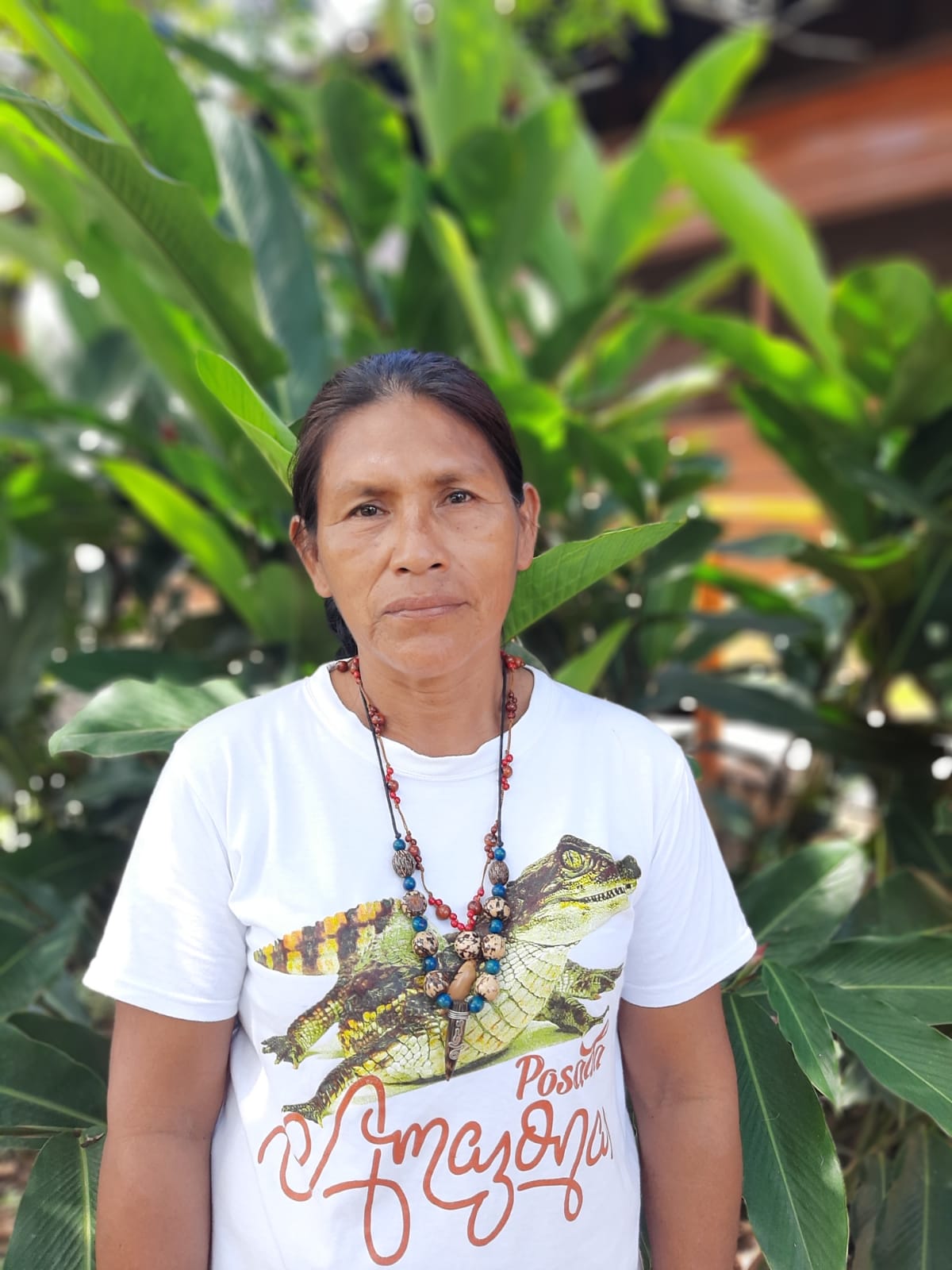Marisela stands outside her community hall, in front of an embroidered flag that reads ‘Comunidad Nativa Infierno’ and adjusts a small microphone attached to her t-shirt. The sounds of the jungle surround her as she looks towards the camera and prepares for an interview.
Marisela doesn’t have much time. She’s president of Peru’s indigenous Infierno community of Ese Eja people, and she’s got a lot on her plate. At 52 years of age, what she has achieved is remarkable. A few years ago, Marisela was elected as president, and became the second ever woman leader of her community. Since then, she’s worked to drive equality across her community’s leadership and today, many positions in her administration and on her board are held by women.
Marisela is an ambitious leader, and she’s set bold plans and targets for her community. Since becoming part of the REDD+ project in 2011, the Infierno’s conservation of their forests has only strengthened. With the help of climate finance from the sale of carbon credits, Marisela and her community have been empowered to protect and legalise their ancestral community lands.
The Infierno community face many challenges in Peru as an indigenous community organisation. Its proximity to the expanding Interoceanic highway connecting Peru and Brazil is a constant threat, while its small size as a community poses several risks to future generations’ ability to preserve territory. Luckily, under Marisela’s determined leadership, bolstered by a strong REDD+ programme implemented by the local NGO, AIDER, the Infierno community is stronger than ever.
To Marisela, working as a team is critical. Since her election, she’s focused on educating her community on the importance of conservation work, and how to ensure the Infierno community’s resilience through promoting sustainable revenue streams that nurture forest resources. Although one of the only female presidents the Infierno has ever had, she doesn’t let this define her. Marisela’s aim is to empower other women in her community to follow in her footsteps and achieve leadership positions that bring the female perspective and voice to light. “We’re giving opportunities to women,” she says, “and I’m very happy about this, because women are being empowered to become leaders.” The Infierno community, and many indigenous communities in Peru, has traditionally been patriarchal so Marisela’s work is driving real change.
Looking around at community life pass by, Marisela finishes up the interview with a final remark. “The Ese Eja people must continue the challenge of conservation. This is how we will exist as a community, both now and in the future, and take care of the environment that our way of life depends on”. With that, the microphone is off and Marisela hurries inside – there’s much work to be done!
Contact us to learn more about our portfolio of high-quality carbon projects delivering benefits across climate, nature and people.
